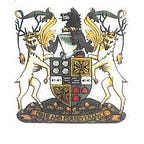Democracy in the Modern Age: Was Socrates Right All Along?
A definition of technology in Webster is “the practical application of knowledge, especially in a particular area.” So it can easily be canned food or simply bow and arrow. Almost every area had its fair share of technology in its day. According to historians humans started to live together and transition from the happy hunter-gatherer lifestyle to defend themselves not only from tribes with the intentions of harm but also from wild animals and natural changes like floods.
From Gilgamesh and the first Indus Valley civilizations the social structures and technologies to govern an area continued on to evolve and flourish. The booming sea trade and the structured civil organizations made Ancient Greek very rich and more free in a sense that they could afford to think about the Republic and how to restructure the social pyramids. The golden era of Ancient Greek gave the western civilization its start, and gave humanity many gifts like tragedies and geometry and many more. But before all these, there were a new idea sparkling in the minds of Athenians and Lacedaemonians alike, enter Democracy.
Democracy derives from Demos and Kratos as many will remember from their boring philosophy classes in high school. “Strength of the people” can be derived from it. Essentially democracy says that one person alone can not be enough to decide the fate of a nation, whole people of that group should decide their fate together. Given the alternative — autocracy: one person deciding all the matters without the input of citizens — the social technologies seem to have advanced pretty far for 500 B.C. Enter Socrates.
Socrates were in many sense of the word, a skeptic. He had his doubts about democracy and argued that only those who think about it should be allowed to vote.
His ways of thinking and arguments comes to us in Plato’s Republic. In one part of the republic Socrates argues with someone, asking him who should choose the captain of a ship, common people or sailors who are experienced and possess the knowledge necessary about survival on ships. Socrates does not argue that only few on the top should choose the king. He simply wants a society that only ones that who possess the knowledge necessary to choose a leader votes. His fear is that uninformed people are more susceptible to manipulations of those who are with ill-intent. A great rhetorician who have no intention of being a leader but to fatten their wallet, can easily sway the masses to vote for them.
He gives the example of the doctor and the sweet shop owner. The sweet shop owner can make the argument against the doctor that “he gives you bitter syrups and pokes holes on you, cuts your skin and take your blood,” but he can offer you many sweets and candies. Surely no one with their right mind would vote for the doctor would it? The sweet shop owner in the story is a Demagouge.
In 2016 two controversial elections in two unquestionably sovereign nations have caught everybody’s attention. In July 23rd, Britain voted for the United Kingdom European Union membership referendum, 2016. Which wouldn’t be open to vote if it weren’t for any demagouges. For years leading to 2016 UKIP or United Kingdom Independence party have been campaigning against European Union. Their chief argument against staying in the EU was the membership fee, which was according to UKIP was £350 million per week. They argued if Britain left EU, this astronomical fee could be used to fund National Healthcare System. Which was revealed after the vote as misleading.
The money was flowing towards EU, that was true. But it wasn’t as high or as pointless as “being a part of a global fraternity.” EU opened job opportunities both for citizens of Britain and for citizens of Europe. The market for British manufacturers and industries in European Union will be behind a huge paywall after Britain completes her exit (if ever). The currency of Britain keeps dropping whenever the Prime Minister gives a speech. And not even mentioning the resignations from UKIP after they got what they wanted (hint: they even didn’t know what to do after they’ve won).
When taken a look at the demographics, it’s hard to argue against Socrates. While the reasonable stay vote is very popular among the educated, the leave vote clusters made up of largely uneducated citizens.
There are a lot of things that are wrong with Trump elected for president, but to keep matters focused let’s take a look at his voter demographics;
As we can see from the graphics, the majority of the votes came from Old people. If we go out on a limb and say that old people are conservative rightists and because they are old, they may not see the end of the term of the candidate that they elected, would it be correct? If so how can any sane democracy give the majority of it’s power to the people who have the less time to spend in the elected system.
Some would argue against it but again, some would agree that Donald Trump is a demagouge. We can argue that his unattainable promises and a rhetoric that gives the people what they want to hear makes him so.
The whole world is experiencing an anti-globalization wave. The demagouges are the surfers who ride that wave. Surely the wave will collapse on itself and all the world left with will be some bubbles.
Part Two will dissect the consequences of all these. With the referendum in Turkey coming up, the political arena will settle it’s middle-eastern battle. For good or worse, this state of frustration will settle in a new synthesis.
